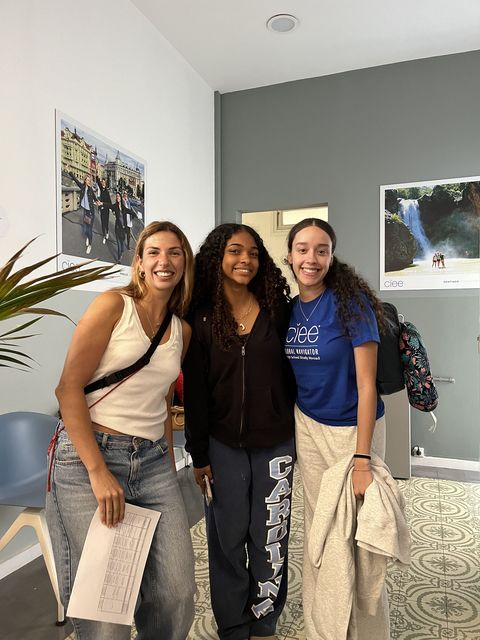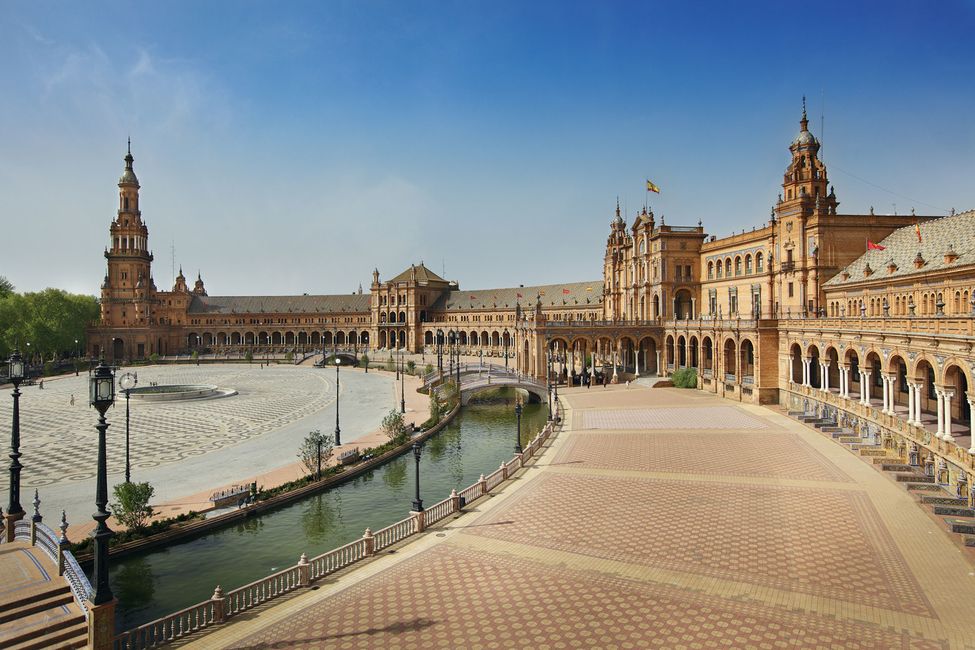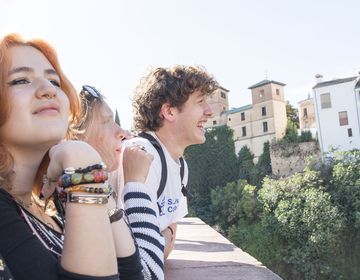Your Quick Guide to Taking a Gap Year in Spain
A gap year in Spain is the opportunity to take time after high school to pursue an international learning experience before beginning a formal college education. It's exciting to see the world as an independent young adult while gaining real-world skills to prepare for your next chapter in life. One of the most significant benefits of taking a gap year in Spain is the chance to experience language and culture immersion.
So, if you've been dreaming of seeing Spain from a local's perspective, this guide shares everything you need to know when taking a gap year in España!
Moving to Spain Must-Dos
Before you can embark on your adventure to Spain, there are a few things you must take care of!
- If you don't already have one, you must first apply for a passport. The application process requires identification documents, an application form, and recent passport photos. Waiting times vary but can be around eight to 11 weeks. You can apply for a passport with U.S. Department of State.
- It's also essential to consider the following: do you need a visa to travel to Spain? To stay in Spain for longer than 90 days, you'll need to apply for a long-term visa. The visa application process must be completed before you leave and you’ll need to provide documentation like proof of program acceptance, confirmation of international health/accident insurance and proof of financial means during your stay.
For more on visas, check out our blog: How Do Visas Work When Studying Abroad for a Gap Year?
Staying with a Host Family

The time you spend with your host family is one of the most valuable experiences you'll have during your gap year. Your host family is your welcome committee and support system in Spain. They're a helpful resource for when questions about social norms, cultural etiquette or language barriers arise.
While staying with your host family, it's essential that you’re respectful of their home and that you make an effort to get to know them. You’ll likely go through an adjustment period when you first move in, but by the end of your program, the relationships you’ll forge with your host family will last a lifetime.
Living in Spain: Fun Facts
When planning to move to a new country, it's always a good idea to brush up on what life is like there to avoid surprises and confusion when you arrive.
Some unique and important things to know about Spain include:
- When is the best time to travel to Spain?
Weather-wise, May to June and September to early October is the best time for dry, warm weather. But every season in Spain has something worth experiencing.
- What are siestas?
Siestas, or mid-day naps, are very common in Spain, especially in smaller cities and towns. Most businesses close their doors for a long break between 2-5 p.m.
- When do people eat in Spain?
Mealtimes are much later in Spain than in many other places, with lunch taken during siesta time and dinner often eaten around 9-10 p.m.
Taking Part in Cultural Activities
Exploring the unique cultural experiences and travel opportunities in Spain is a key aspect of your gap year abroad. CIEE Gap Year participants enjoy at least two cultural activities each week—such as visiting iconic landmarks like Seville’s Plaza de España—and take day trips twice per semester to nearby cities like Cádiz and Córdoba. These activities offer exciting chances to practice Spanish while immersing yourself in the rich local culture.
Celebrating National Holidays in Spain

There are 14 national holidays in Spain, some declared at the national level and others at the regional level, offering a unique glimpse into the local culture. Holidays in Spain mean most businesses close for the day and locals spend time celebrating with parades and loved ones.
Some of the most noteworthy cultural activities in Spain include:
- Semana Santa (Holy Week) before Easter
- Carnival during Lent
- National Day of Spain on October 12th
- Christmas, New Year’s Eve and Three Kings Day
Taking Language Classes in Spain
If you're still debating whether you should study abroad in Spain, the language classes can be reason enough!
CIEE's Gap Year in Spain programs feature at least 15-20 hours of instruction every week. These in-depth lessons, typically offered three to four days a week, provide a meaningful foundation of knowledge in a structured environment that you can use outside the classroom.
Applying for College Deferral and Credits
Before your gap year abroad, you may be curious about how to apply for college deferral. In most cases, colleges are open to deferring admission for students participating in a gap year program. However, confirming with your college of choice is essential before going abroad.
Although participants do not earn college credit through CIEE, you will walk away with a detailed report outlining your academic successes that colleges may use to issue credits. Additionally, those interested may opt to take the official Spanish language Cervantes exam recognized in Europe and by select U.S. institutions.
Relying on CIEE’s 24/7 Support
CIEE offers support to participants throughout every step of your gap year abroad process. Before you leave, all CIEE Gap Year participants are enrolled in international travel insurance and receive helpful cultural resources for their move abroad. While in Spain, you'll have 24/7 access to local CIEE support staff.
Take Off on an Adventure of a Lifetime with CIEE Gap Year Abroad in Spain

Are you wondering how to study abroad in Spain? CIEE's Gap Year in Spain program is a Gap Year Association-accredited program open to recent high school graduates (no more than one-year post-graduation) who are at least 18 years old before departing and in good academic standing.
Participants experience life-changing benefits that can help students perform better in college, enjoy a competitive edge on future resumes and applications, and have the rare opportunity to leap a level ahead in the local language.
Learn more about your gap year programs in Spain options and schedule a call with a CIEE Enrollment Coordinator if you have more questions about taking a gap year in Spain.
Related Posts
Wrapping Up My Gap Year Abroad in Spain
Post written by CIEE Global Ambassador Lindsey Andel who is currently participating in CIEE’s Gap Year Abroad Program in Spain . In this post, Lindsey reflects on her transformative experience... keep reading
7 Tips for Learning Spanish While on a Gap Year Abroad
The Spanish immersion participant experience while on a CIEE Gap Year Abroad is the absolute best way to learn the language. While abroad, you'll hear, read and speak Spanish everywhere... keep reading
My Daily Routine in Spain as a Gap Year Abroad Student
Post written by CIEE Global Ambassador Lindsey Andel who is currently participating in CIEE’s Gap Year Abroad Program in Spain . In this post, Lindsey shares about her daily life... keep reading



